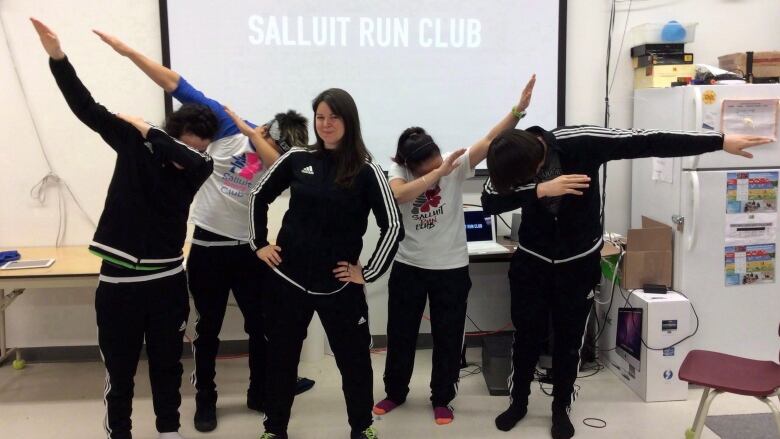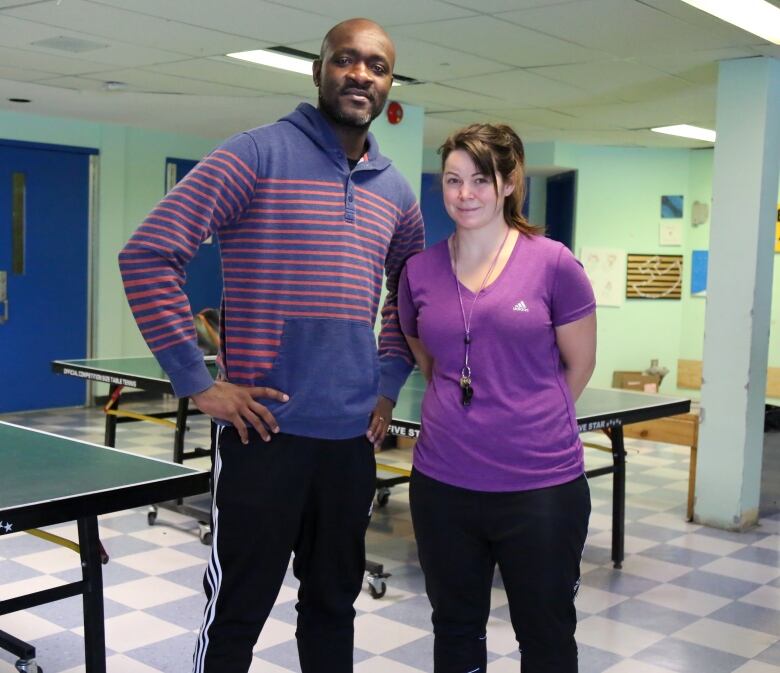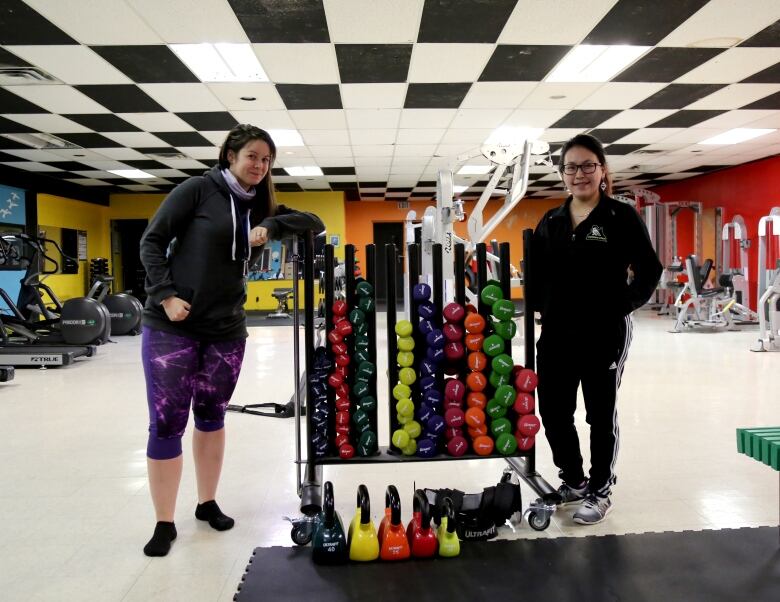Looking for the best teacher in the world? Head to northern Quebec
Maggie MacDonnell recognized for her work in rural Salluit, Que., community

Latest
- MacDonnell was announced as the winner of the $1 million US prize on Sunday
Maggie MacDonnell was in Congo when she logged onto a computer to interview for a teaching job in the upper reaches of northern Quebec.
The interview went well, and she was soon flying a world away to Salluit, Que., population 1,450.
That was almost seven years ago, and her work there has some people callingMacDonnellone of the best teachers in the world.
That's no idle brag fromthe class pet.MacDonnellbeat out 20,000 other nominees and is the lone North American on ashort listof 10 for the Global Teaching Prize, which comes with $1 million US.
A teacher, a coach, a mentor...
Salluit is a picturesque, windswept spot not far from the Hudson Strait, the second-most northern community in the province.
Not long after she arrived, MacDonnell was joined by the man who is now her husband, Abdullah Kafashe, a strapping Tanzanian. He was the only African and only Muslim in Salluit.

The pair quickly adopted the community, and the people of Salluit adopted them in return, giving Kafashe the common family name "Kumakuluk."
At Ikusik High School, MacDonnell taught girls who were dropouts or potential dropouts. But her involvement quickly went beyond the classroom.
MacDonnell became the fitness coordinator for the village and started a running club in Salluit. She's brought young athletes to races in Nova Scotia and Hawaii.
"I'm also a coach, I'm also a mentor, I'm a bit of a motivator," saidMacDonnell. "For some children I'm also somewhatof a parental figure, and older sibling, and aunt and extra mother."
In 2011,MacDonnellrealized the village runners needed a place to train, so she helped build a fitness centre above the local arena using a $100,000 grant.
That is only slightly more than what is spent each week inSalluiton drugs and alcohol, she said.
Local police force Capt. Tony Paquet says MacDonnell's estimation "makes sense" given a mickey of alcohol on the black market costs about $120 and a gram of marijuana about $50 to $60.
"When I compare healthy opportunities to unhealthy opportunities (in the village), the balance is really in favour of unhealthy opportunities."
Building the fitness centre wasn't easy. The space needed a good cleaning and a paint job. But the biggest challenge was getting fitness equipment to the remote community.
A sea lift carrying equipment forSalluitgot stuck several hundredkilometersaway when the waters froze.
Not to be deterred, the community hired local hunters to bring the fitness gear back. It took nine months for the treadmills,ellipticalsand workout machines to be brought, piece-by-piece, into town on skidoos pulling sleds also carrying caribou or Arctic char.

Reluctant nominee
A former colleague of MacDonnell's who works for UNICEF insisted she accept a nomination for the Global Teaching Prize, which is administered by the Varkey Foundation. But for six months MacDonnell just rolled her eyes.
"Who in their profession really thinks they are the best in the entire world at what they do; it's a bit of an overstatement," she said.
She finally agreed when he reframed his proposition, arguing her nomination could bring awareness of issues facing Indigenous youth.
But despite being shortlisted, MacDonnell who grew up in Afton, AntigonishCounty: "the backwoods of Nova Scotia" said she sometimes feels "awkward" by the acclaim. She prefers to see her work as a team effort with her students, colleagues and husband.
If MacDonnell wins, she plans to use the prize money to help "reawaken a love for the land" among Inuit youth with an environmental stewardship project.
She hopes to create a kayak program so Inuit can access the land more easily, affordably and counter some of the effects of colonialism.
"With the dog slaughter that was implemented by the RCMP, travel on the land became machine dependant." MacDonnell said.

"When you are machine dependant you are forced to be in the cash-based economy as opposed to the land-based economy."
While kayaks are among the most important legacies of Inuit culture, MacDonnell said, there are few in the north. She believes making them more available will encourage Inuit youth to become environmental leaders.
"As non-Indigenous Canadians we really look to Indigenous people to save our environment and be activists," MacDonnell said.
But, she added, if we "expect (Indigenous youth) to be activists and protectors of the land we need to build programs to help support them, building it with them, of course."
A trip to Dubai
MacDonnell, and the nine other finalists, have been invited to Dubai where the winner will be announced on March 19.
Her school board has agreed to send at least two students with her. "I won just by being able to bring them," she said.
MacDonnell and her husband were heartbroken when they learned in February they were being transferred to Kuujjuaq, more than 600 kilometres away.
She is on a leave of absence from her teaching position while she takes a job at the the KatavikSchool Board for several months, managing a budget of about $500,000 to promote healthy living in all 14Nunavikcommunities.
"Wedo hope that we only have to step away from the village for a little bit, and that the position can be relocated to Salluit," MacDonnell said.
As MacDonnell walked the streets of Salluit before her departure, she was constantly being approached by community members who shook her hand and told her she would be missed.
But the fitness centre she established is not going anywhere. It will be managed by one of MacDonnell's star runners, Mary Pootoo.












_(720p).jpg)


 OFFICIAL HD MUSIC VIDEO.jpg)
.jpg)



























































































